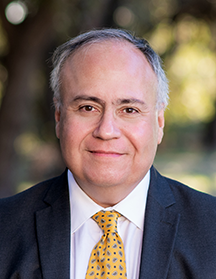• Hector Bojorquez • Knowledge is Power • October 13, 2021 •

We urge all teachers to create classroom experiences that value everything students bring to the classroom. As our national founding documents state that all people are created equal, we must value students’ fullest expression of themselves. We must value the totality of their identity.
We can, and must, do this in light of current laws enacted across the country. The laws are affecting students of color, who are already experiencing achievement gaps and are underrepresented in higher education, in STEM fields and in the arts. It is these very students whom we must invite to discuss the totality of their being, their experiences and challenges.
Regrettably, the chilling effects are already being seen. A library has begun to censor books highlighting people of color, a principal who dared talk about national reconciliation is being dismissed, and schoolboards in pockets across the nation have become battlegrounds where the ill-informed have disrupted decades of work designed to close achievement gaps that can only benefit our nation’s workforce.
No student should fear bringing their experiences to the classroom. As educators, we must facilitate discussions that include students’ backgrounds, family histories, and how those are tied to our country’s victories and struggles, regardless of the current environment.
For example, there is no controversy in the following lesson plan that I adapted from my earlier days in the classroom.
Sample Lesson
Grade 8 Texas TEKS (Texas standard)
Students discuss how and whether the actions of U.S. citizens and the local, state and federal governments have achieved the ideals espoused in the founding documents. (§113.20 Social Studies, Grade 8)
Objective
Students will describe the role of their community in achieving the ideals espoused in the founding documents.
Activities
In groups, students will…
• Use local newspaper archives and create a timeline of local events leading up to the signing of the Civil Rights Act of 1964 and/or the Voting Rights Act of 1965.
• Create five to 10 interview questions about their communities’ involvement, memories and thoughts concerning the Civil Rights Act of 1964 and/or the Voting Rights Act of 1965.
• Interview family members, community leaders, civics groups, elders, tribal councils, etc.
• Write a journal entry about their experiences interviewing community members.
• Create a video about their family members, community leaders, civics groups, elders and tribal council contributions to the passing of these laws that have been universally accepted as “espousing the ideals in the founding documents.”
Such a lesson plan can help transform our discussions about contentious issues. It also centers the experiences our students’ families and communities in achieving the ideals of the founding documents. It is a lesson that only begins to scratch the surface of our community’s shared experiences.
It is a starting point to discuss current issues as well and is well within the bounds of the Texas law, for example, that states, “A school district or open-enrollment charter school may not implement, interpret or enforce any rules or student code of conduct in a manner that would result in the punishment of a student for discussing, or have a chilling effect on student discussion of… American values, slavery and racism are anything other than deviations from, betrayals of, or failures to live up to, the authentic founding principles of the United States, which include liberty and equality.” (See: What does HB 3979 Do?)
While it is the informed opinion of researchers that no statehouse should be in the business of curriculum writing, it is explicit in this section that we can discuss the aberration and deviation that is racism and slavery.
I encourage you to assert our common American experiences by creating the type of lessons and classrooms that affirm the background and culture that our students bring to us. This absolutely means that we can and must talk about racism. The current law, with all of its problems and questionable intentions, could not ignore the historical facts of slavery and racism. So, while many have already felt the chilling effects, we must have the courage to invite students’ voices.
We should have no fear in creating the uncensored spaces that allow us to discuss how those deviations happened and how many continue to do the work of achieving the more perfect union espoused in our founding documents.
[©2021, IDRA. This article originally appeared in the October 13, 2021, edition of Knowledge is Power by the Intercultural Development Research Association. Permission to reproduce this article is granted provided the article is reprinted in its entirety and proper credit is given to IDRA and the author.]



